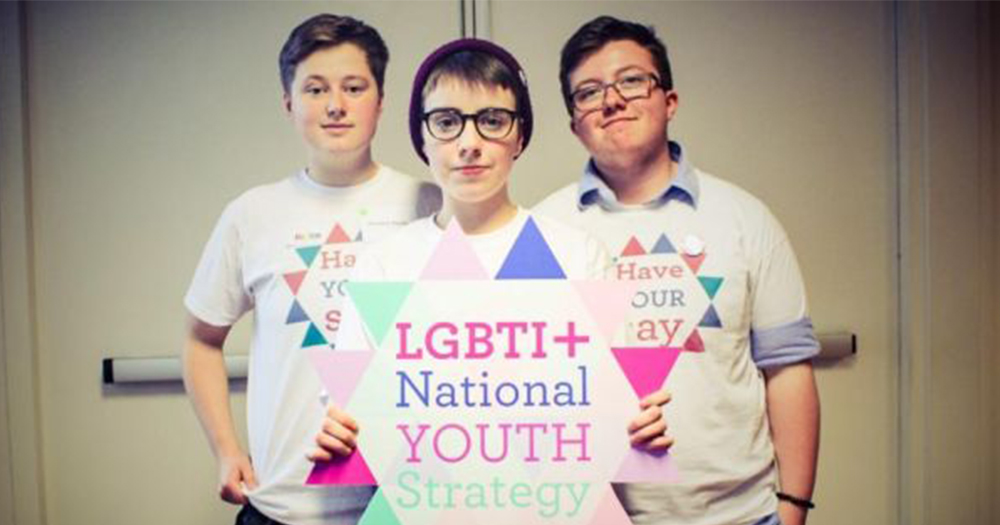On Saturday, the oversight committee for the LGBTI+ youth strategy published one of their first reports that will help to inform the strategy in 2018.
They consulted with over 4000 young LGBTI+ people from around the country who have had their say regarding what policy is important to them.
In light of the report, independent chair of the oversight committee Una Mullally said: “Life is improving for queer young people, but the fear, shame and worry have not gone away”.
Changes that would improve the lives of young LGBTI+ people
The most prevalent responses from participants were the need for better training for professionals, inclusive education, the enforcement of anti-bullying policies, gender-neutral toilets and changing rooms, the inclusion of nonbinary people in the Gender Recognition Act, improved mental-health services and better sex educations that includes LGBTI+ people and relationships.
Bullying One of the Biggest Issues LGBTI+ Youth Are Facing
Bullying and discrimination were frequently mentioned and the point was raised that it is not only LGBTI+ young people who are being targeted- anyone who is perceived to be different is often the targets.
One of the suggested models for combatting exclusion was to establish groups such as Gay-Straight Alliances in schools. This would ensure LGBTI+ students are not segregated.
Social media personality James Kavanagh highlighted the importance of having straight allies when he spoke of his personal experience of being bullied in school.
He gave an example of one such perpetrator who handed around a survey to the class that asked, “how gay is James?”. It was only when a classmate stopped it being circulated that James realised that being the victim of bullying might not be inevitable.
Awareness, Exception and Inclusion
A positive aspect of the report found that young people are much more likely to be out at school then they have been in the past. They also have access to a vocabulary that many older LGBTI+ generations would not have had.
The report discusses how there is a need to bridge the gap between older and younger LGBTI+ people. It is hoped that this would allow the young to learn the history from their elders and in understanding the context of their rights and culture.
Una Mullally added: “even though our environments can improve, and legislation expands to include and protect LGBTI+ people, the emotions at the heart of these young people’s experiences are something we still have in common. A welcoming context for one’s sexuality or gender identity is invaluable, but those feelings of isolation, fear, shame, panic and worry cross generations.”
The LGBTI+ Youth Strategy, which is a first of its kind worldwise, is set for release in 2018.
© 2017 GCN (Gay Community News). All rights reserved.

comments. Please sign in to comment.